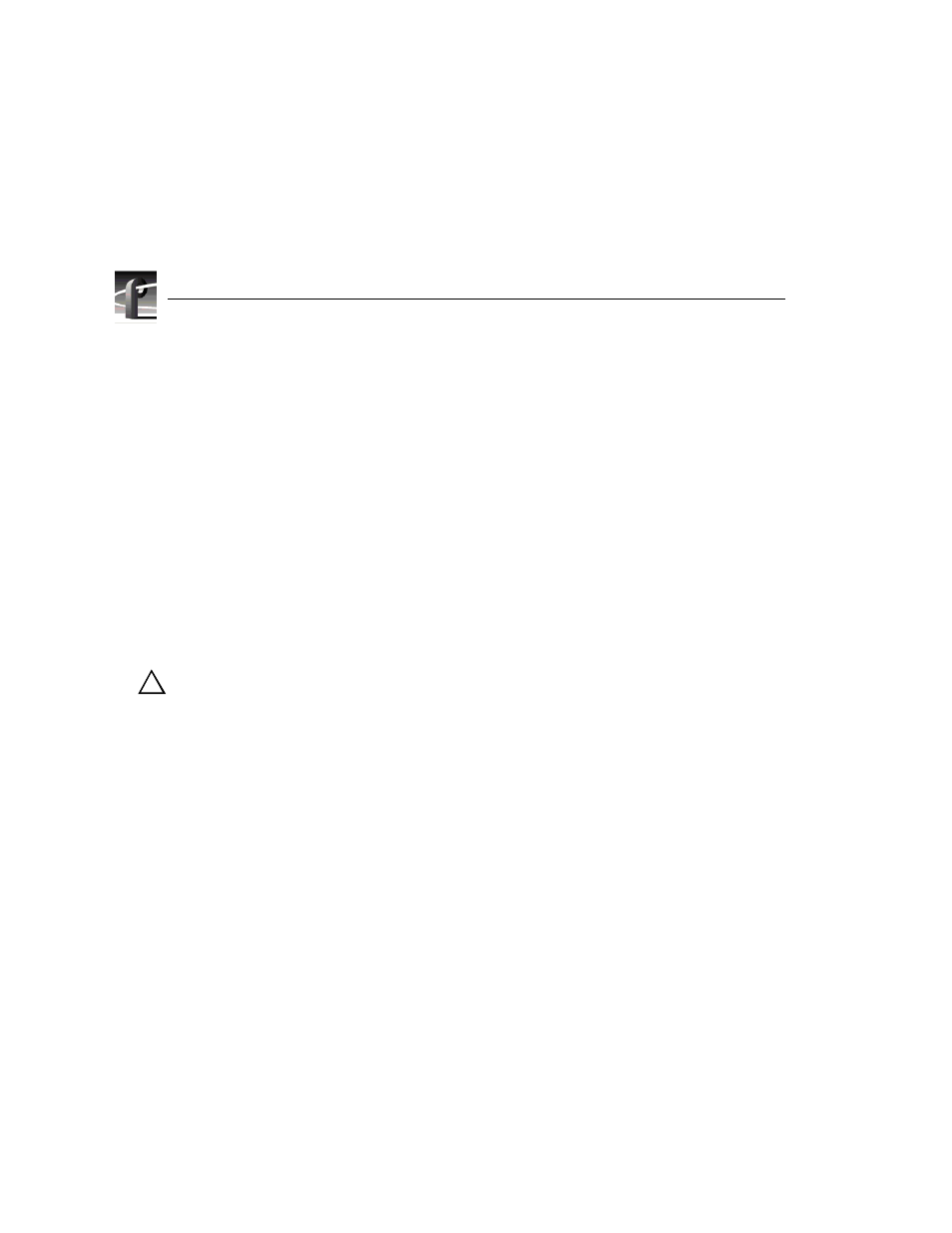Installation procedures, Removing the chassis covers – Grass Valley Profile Composite I/O User Manual
Page 12

Analog Composite I/O Installation
12
Analog Composite I/O Installation
Installation Procedures
The procedures that follow take you step-by-step through the installation of the
Analog Composite I/O board. When you complete the physical installation, go on
to the Verification Procedure to complete the installation.
Before you install the new board, prepare the Profile system for installation.
Preparation involves extending the chassis, removing the top covers, removing the
circuit board hold-downs, and moving currently installed boards as necessary to
make room for the Analog Composite I/O board.
The installation procedures include a discussion on board locations. This
discussion simplifies installing and, if necessary, moving boards around, and
provides consistency when doing so. The procedures also include internal audio
clock cabling information.
WARNING: The Profile system is too heavy for one person to remove from
the equipment rack. To avoid possible injury, get help when removing the
Profile system from the rack.
Removing the Chassis Covers
Figure 1 shows chassis cover screws for a PDR200. On a PDR 100, the screws in
the center of the top front cover may not be present. To remove the chassis covers:
NOTE: Take care not to lose these chassis screws. They are required to meet
the EMI specifications for the Profile system.
1. Turn Profile system power off and detach the power cord.
2. Loosen the front panel retaining screw and pull the chassis out of the rack
until the slide stop latches engage.
3. Use the Torx tool with the T10 tip to remove the front chassis cover (
Ê
in
Figure 1) which covers the fans and disk drives. The front cover must be
removed first because it overlaps the rear cover.
4. Use the Torx tool with the T10 tip to remove the rear chassis cover (
Ë
in
Figure 1) which covers the circuit boards.
!
